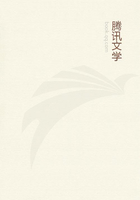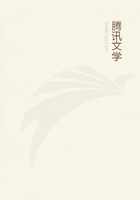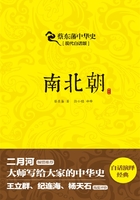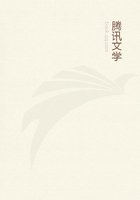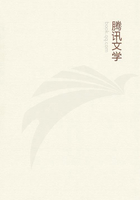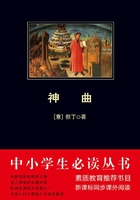After these observations on what may be called the best preserved kind of Gypsy, I proceed to a lower kind, that of England. The English Gypsy speech is very scanty, amounting probably to not more than fourteen hundred words, the greater part of which seem to be of Indian origin. The rest form a strange medley taken by the Gypsies from various Eastern and Western languages: some few are Arabic, many are Persian; some are Sclavo-Wallachian, others genuine Sclavonian. Here and there a Modern Greek or Hungarian word is discoverable; but in the whole English Gypsy tongue I have never noted but one French word--namely, tass or dass, by which some of the very old Gypsies occasionally call a cup.
Their vocabulary being so limited, the Gypsies have of course words of their own only for the most common objects and ideas; as soon as they wish to express something beyond these they must have recourse to English, and even to express some very common objects, ideas, and feelings, they are quite at a loss in their own tongue, and must either employ English words or very vague terms indeed. They have words for the sun and the moon, but they have no word for the stars, and when they wish to name them in Gypsy, they use a word answering to 'lights.' They have a word for a horse and for a mare, but they have no word for a colt, which in some other dialects of the Gypsy is called kuro; and to express a colt they make use of the words tawno gry, a little horse, which after all may mean a pony. They have words for black, white, and red, but none for the less positive colours--none for grey, green, and yellow. They have no definite word either for hare or rabbit; shoshoi, by which they generally designate a rabbit, signifies a hare as well, and kaun-engro, a word invented to distinguish a hare, and which signifies ear-fellow, is no more applicable to a hare than to a rabbit, as both have long ears.
They have no certain word either for to-morrow or yesterday, collico signifying both indifferently. A remarkable coincidence must here be mentioned, as it serves to show how closely related are Sanscrit and Gypsy. Shoshoi and collico are nearly of the same sound as the Sanscrit sasa and kalya, and exactly of the same import; for as the Gypsy shoshoi signifies both hare and rabbit, and collico to-morrow as well as yesterday, so does the Sanscrit sasa signify both hare and rabbit, and kalya tomorrow as well as yesterday.
The poverty of their language in nouns the Gypsies endeavour to remedy by the frequent use of the word engro. This word affixed to a noun or verb turns it into something figurative, by which they designate, seldom very appropriately, some object for which they have no positive name. Engro properly means a fellow, and engri, which is the feminine or neuter modification, a thing. When the noun or verb terminates in a vowel, engro is turned into mengro, and engri into mengri. I have already shown how, by affixing engro to kaun, the Gypsies have invented a word to express a hare. In like manner, by affixing engro to pov, earth, they have coined a word for a potato, which they call pov-engro or pov-engri, earth-fellow or thing; and by adding engro to rukh, or mengro to rooko, they have really a very pretty figurative name for a squirrel, which they call rukh-engro or rooko-mengro, literally a fellow of the tree. Poggra-mengri, a breaking thing, and pea-mengri, a drinking thing, by which they express, respectively, a mill and a teapot, will serve as examples of the manner by which they turn verbs into substantives. This method of finding names for objects, for which there are properly no terms in Gypsy, might be carried to a great length--much farther, indeed, than the Gypsies are in the habit of carrying it: a slack-rope dancer might be termed bittitardranoshellokellimengro, or slightly-drawn-rope-dancing fellow; a drum, duicoshtcurenomengri, or a thing beaten by two sticks; a tambourine, angustrecurenimengri, or a thing beaten by the fingers; and a fife, muipudenimengri, or thing blown by the mouth. All these compound words, however, would be more or less indefinite, and far beyond the comprehension of the Gypsies in general.
The verbs are very few, and with two or three exceptions expressive only of that which springs from what is physical and bodily, totally unconnected with the mind, for which, indeed, the English Gypsy has no word; the term used for mind, zi--which is a modification of the Hungarian sziv--meaning heart. There are such verbs in this dialect as to eat, drink, walk, run, hear, see, live, die; but there are no such verbs as to hope, mean, hinder, prove, forbid, teaze, soothe.
There is the verb apasavello, I believe; but that word, which is Wallachian, properly means being trusted, and was incorporated in the Gypsy language from the Gypsies obtaining goods on trust from the Wallachians, which they never intended to pay for. There is the verb for love, camova; but that word is expressive of physical desire, and is connected with the Sanscrit Cama, or Cupid. Here, however, the English must not triumph over the Gypsies, as their own verb 'love'
is connected with a Sanscrit word signifying 'lust.' One pure and abstract metaphysical verb the English Gypsy must be allowed to possess--namely, penchava, I think, a word of illustrious origin, being derived from the Persian pendashtan.

